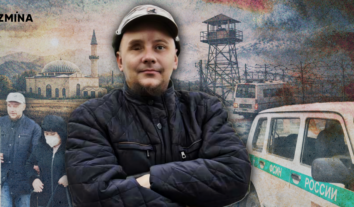Crimean Tatar Media in Crimea: situation in 2014 – 2016
Crimean Tatars – an indigenous people of the peninsula – started proactively developing their media immediately after beginning their mass return to motherland from the places of deportation carried out by Stalin. This return commenced at the end of the 80s and continued throughout the 90s.
Despite some bureaucratic hindrances, by the time that the peninsula underwent occupation by Russia in March 2014, Crimea had two socio-politically themed Crimean Tatar newspapers in Crimean Tatar language (Qirim and Yeni Dunya), two newspapers in Russian (Golos Kryma and Avdet), Crimean Tatar tele- and radio-departments with the State Television and Radio Company Krym that aired shows in Crimean Tatar language, ATR TV-channel and Meydan radio station (part of the Atlant-SV private holding) that ran shows in Crimean Tatar, Russian and Ukrainian languages.
All newspapers, apart from Avdet received state aid in some format.
In addition, there was one full-scale news-agency, QHA that published materials in Russian, Turkish and English, as well as private news-sites on the web: Crimeantatars.org (Atlant-SV, functioning in Crimean Tatar and Russian), Qirim-Vilayeti.org, Teraze.org.ua and Qirimtatar.org in Russian.
FIGHTING FOR THE PRINCIPLES
Throughout the first months of the occupation of Crimea that was opposed by the absolute majority of Crimean Tatars, all media of this native people continued unbiased reporting of the events that were unfolding. Even the Crimean Tatar department of State TV and Radio Company Krym (the channel was seized by the Russians on 1 March 2014) tried to engage in unbiased reporting as much as possible until the end of April 2014.
Yet, since end of April, the department was instructed not to allow footage of the leader of the Crimean Tatar people, Mustafa Dzhemilev, head of the Medjlis of the Crimean Tatar People, Refat Chubarov, as well as Medjlis members. An enforced leave was initiated for the head of the department, Seitislam Kishveev (who had been director of the department for many years), as well as editor-in-chief for news-programming, Shevket Ganiev.
Kishveev confirmed imposition of “hard-core censorship”. “I cannot work under such conditions, and so I have to go on leave”, – he noted. On 27 June, Kishveev was fired. He noted that he would not renew himself in this position. “It is not worthwhile working with these authorities any more“, – he noted, adding that only those loyal to the occupants were welcome in the department.
It happened as predicted. The new director of the Crimean Tatar department, Seiran Mambetov, fired 7 staff members who had a multi-year track record, in September. Those who remained on payroll were only his wife, Susanna Beitulaeva, and her co-anchor, Susanna Khalilova. As staff members reported, the terminations were initiated by the new director general of the TV-channel, Yekaterina Kozyr. Mambetov explained the firings by “professional inadequacy” of those who were given the notice.
Until the end of 2014, the Yeni Dunya weekly dependent on budgetary allocations, also tried to keep certain neutrality in their reports and pieces. At the same time, in January 2015, the weekly underwent total censorship.
By that time, the Qirim-Vilayeti.org and Qirimtatar.org ceased functioning as well.
Out of the media outlets that were licensed by the Federal Service for Supervision of Communications, Information Technology, and Mass Media, Roskomnadzor, and tried to retain neutrality in publications, if at all possible, were the Qirim and Golos Kryma (New) newspapers.
UNDERMINING THE ATLANT-SV-HOLDING MEDIA OUTLETS
On 31 March 2015, the Meydan radio-station stopped airing its programmes, followed by the ATR television channel the next day. This happened after Roskomnadzor, denied them registration and right to air on the territory of Crimea. The channel that in the non-stop mode objectively reported live on all stages of occupation from the first days of peninsula annexation, became target to attack of the occupying authorities, law enforcers and “samooborona” [so-called self-defence militia] combatants.
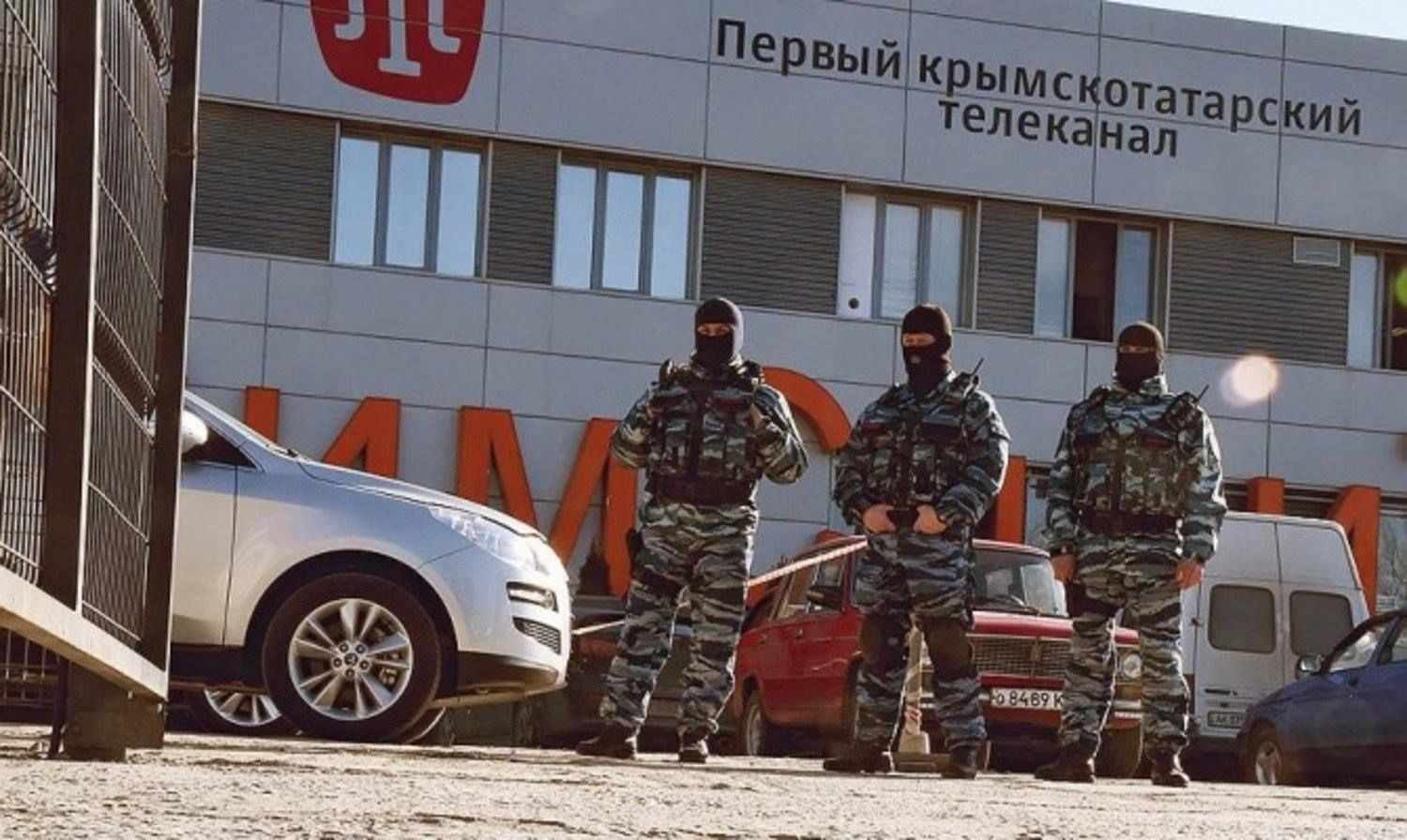
Throughout 2014, reporters of the channel were deprived the right of access to many events, the editorial premises of the media outlets that belonged to the holding were cut off internet supply, and at least on three occasions the camera crews of ATR were attacked when they performed their professional duties.
Throughout 2015, the ATR reporters were continuously cut off from official events and one premises search was conducted on 26 January that year, prior to complete cessation of broadcasting. On 21 April, in Simferopol, the officers of the Investigative Committee organized a house search in the home of ATR cameraman, Eskender Nebiev. He, himself, was arrested on suspected participation in the mass unrest that emerged throughout the rallies of pro-Russian separatists and Crimean Tatars on 26 February 2014 close to the Autonomous Republic of Crimea Supreme Council building.
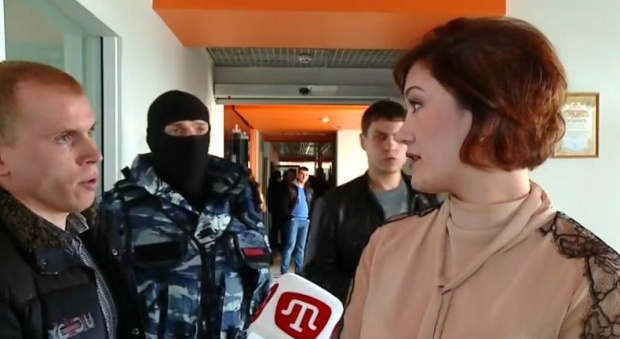
On 19 March 2015, the head of the annexed Crimea, Sergey Aksyonov, openly stated that ATR would stop functioning on the occupied peninsula, since it raised “hope that Crimea would return to Ukraine” and, also, “instigated people to action”.
On 17 June ATR re-launched its broadcasting from Kyiv .This enraged the authorities of the republic. Re-launch of the broadcasting by ATR meant that the channel “would work against Crimea and against Russia by defending the interests of its western patrons” noted the then “Deputy Prime Minister”, Rouslan Balbek. The official warned that Russian law enforcers would launch charges against journalists who would “work to promote a negative image of the Russian Crimea”.
After this, on 12 October, the court sentenced Eskender Nebiev to 2 years and 6 months of a suspended sentence (probation).
On 2 November at about 6 a.m. the houses of ATR ex-director, Elzara Islyamova, former deputy director, Liliya Budzhurova, Lenara Islyamova and Edem Islyamov (the sister and father of the TV-channel owner, Lenur Islyamov) were subjected to a search. A search was also organized in the Moscow apartment of Lenur Islyamov himself. The warrant was issued under a criminal case against him. Yet, neither open-access documents nor the court warrant indicated the criminal code article that had been put in motion. The status of other individuals who had their properties searched also remained unknown under the said criminal case.
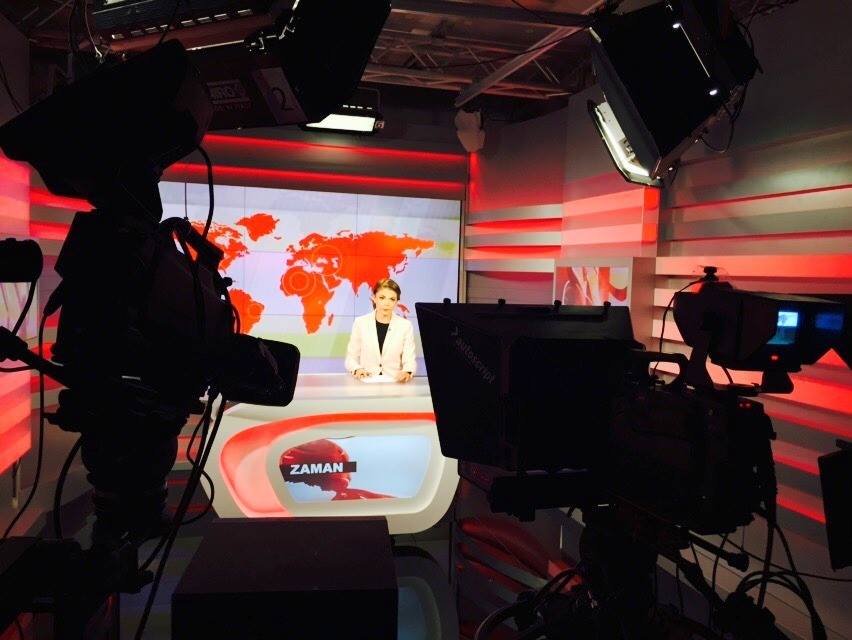
On 9 December about 6 a.m. a second search was organized in the home of Elzara Islyamova, and on 10 December the law enforcers searched the apartment of the former ATR editor, Roman Spiridonov, and his parents.
In August 2016 Crimea faced blockage of the ATR TV-channel website.
On 26 February 2016, radio Meydan announced re-launch of its broadcasting from Kyiv. On 28 June, it won the competition for the available 98 MHz frequency organized by the National Television and Radio Broadcasting Council of Ukraine in Genichesk, Kherson oblast, where a sizeable Crimean Tatar community resides.
On 27 December 2016, it became known that the National Television and Radio Broadcasting Council issued licenses to 4 radio-stations that would be able to broadcast to the occupied Crimea. Amongst them was Meydan.
In December 2015, the media outlet 15 Minut, also belonging to the Atlant-SV holding, re-launched its operations from Kyiv. Access to it is blocked from Crimea starting 3 August 2016. The resource that was originally launched as an all-Crimean one, re-focused on the Crimean Tatar audience.
The Crimeantatars.org website that stopped its operations on 31 March 2015 never came back online again.
All in all, 10 Crimean media outlets, including Crimean Tatar ones, had to move to mainland Ukraine after the occupation. The relocation was provoked by varied types of persecution and limitations, and the media unable to continue operation on the territory of the Crimean peninsula.
Crimean Tatar media that had relocated to mainland Ukraine have significantly lost steam on exclusive materials due to the absence of a reporter network in Crimea.
UNDERMINING THE QHA NEWS-AGENCY AND AVDET NEWSPAPER
On the day that ATR stopped its broadcasting, the editorial board of the Crimean Tatar news agency QHA announced its relocation to Kyiv, as it was not able to receive the Roskomnadzor license to work in the annexed Crimea.
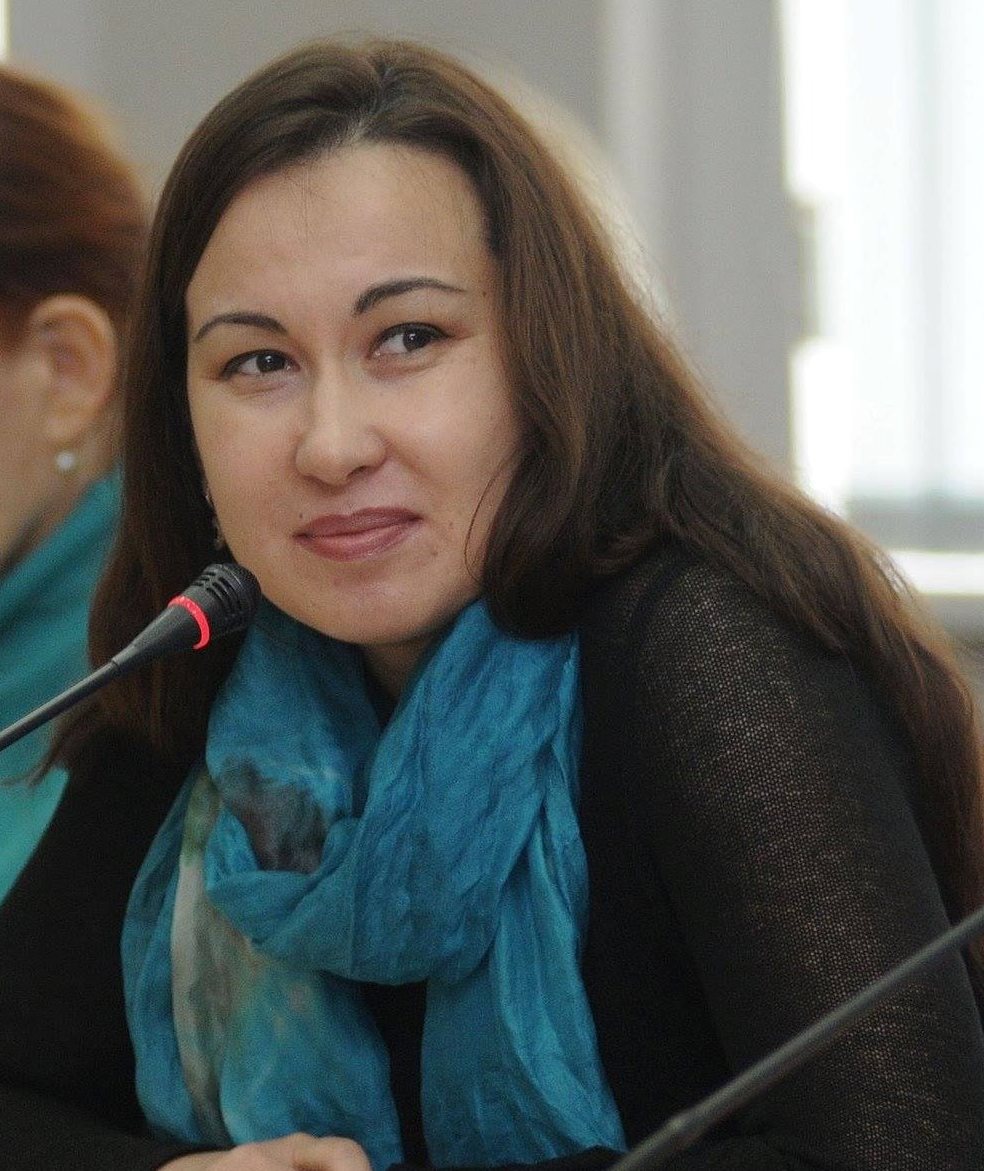
Prior to this decision in May 2014, reporters of the news agency found it impossible to join meetings and other events organized by the occupying authorities – for instance, journalists were denied access to the events held in the Council of Ministers of Crimea noting that the reporters were blacklisted for “misreporting” on the referendum in Crimea.
On 9 August 2014, the owner of the agency, adviser to the head of the Medjlis, Ismet Yuksel, was banned from entry onto the peninsula for 5 years.
On 22 April 2015, director of the QHA news agency, Gayana Yuksel, was summoned to the Centre for Countering Extremism (so-called Centre “E”). She was faced with administrative charges for articles that had been published in 2006 and 2009.
Starting from August 2016, access to the QHA website is blocked in Crimea.
On 1 April 2015, after having received a denial in registration from Roskomnadzor, the weekly Avdet stopped being published to its former full capacity. It had to reduce its print-run to 999 copies, as in accordance with the Russian law, unregistered newspapers may be printed only if the number of copies in one issue is lower than 1000. Editor-in-chief of Avdet, Shevket Kaibullaiev, by that time had already received 4 warnings from Russian law enforcers regarding prohibition on engaging in extremist activities.
The editorial premises that were located in the building of the Medjlis were subjected to search on 16 September, and the next day the newspaper as well as other organizations quartered in the building were given 24 hours to vacate the offices.
The media outlet had to move to the office of the regional Medjlis of Simferopol. Yet, on 15 July 2016, Medjlis member who began working with the occupying authorities, Teifuk Gafarov, who was then “deputy head” of the Simferopol city administration, tampered with a lock on the office door and, de facto, occupied the rooms.
ESTABLISHING NEW MEDIA IN CRIMEA
On 1 September 2015, the Millet television channel, created by the new authorities of the republic, started its broadcasting. Its programming is issued in Crimean Tatar and Russian languages. At the same time, the television and radio departments of STRC Krym were closed.
There is no objective data regarding the ratings of this television channel. Yet, conversations with different groups of the Crimean Tatar population suggest that it is not popular.
On 20 November 2015, the authorities launched a Russian-language newspaper with the Crimean Tatar name Mehraba that aims at the Crimean Tatar audience. The paper is published on a weekly basis with a print run of 1000 copies.
On 13 February 2017, a new radio station was launched into action by the authorities. It is a Crimean Tatar-language radio station called Vatan Sedasi. So far the channel broadcasts only to Simferopol and Simferopol district, but it has received frequencies to air in the largest cities of the peninsula.
ALTERNATIVE
Under omnipresent censorship and limited access to independent Crimean Tatar media to work in Crimea, many Crimean Tatars started receiving information from social networks, reading the posts made by the leaders of the Medjlis, human rights defenders and civic activists.
Nonetheless, Russia tries to block this information channel as well. Thus, in February 2015, the Russian social network “Odnoklassniki” blocked and then deleted a popular group “Crimea and Crimean Tatars”. That online community had over 14.5 thousand subscribers.
In addition, as lawyer for a number of political prisoners Emil Kurbedinov, noted, there are administrative cases launched against activists who are “videotaping arrests, searches, detentions, court processes, taking interviews from the population and lawyers for subsequent publication on the internet”. “We await repressions against the said activists and “field” reporters” – stated Kurbedinov.
AS A RESULT
The above-noted facts of systemic persecutions of the Crimean Tatar media have led to a shrinking number of independent Crimean Tatar media outlets, as well as the share of Crimean Tatar-language productions limiting the ability to receive unbiased information about the events on the peninsula.
According to official data provided by Roskomnadzor, the peninsula has 30 registered outlets that operate in Crimean Tatar. Yet, detailed analysis of these media showed that only 9 media outlets actually use Crimean Tatar language, and 5 out of them are journals and info-bulletins with religious content.
Apart from this, an experimental selective analysis of print materials in Russian and Crimean Tatar languages in the Mehraba weekly demonstrated that only 1.7% of the text was indeed in Crimean Tatar.
FORECAST
Keeping in mind the low professional capacities of the pro-authority Crimean Tatar media, as well as evident propaganda and a small number of such media, the demand for receiving alternative information within the Crimean Tatar community will remain on the rise.
This will foster development of independent media-projects irrespective of the legal restrictions imposed on the territory of Crimea. Consequently, activity of such media-projects will attract attention of law enforcers and lead to other rights violations in reporting activities. Therefore, we may expect a negative impact on the situation in the freedom of speech area and violations will continue to happen.
Human Rights Information Centre
Photo by ATR and ua.krymr.com



